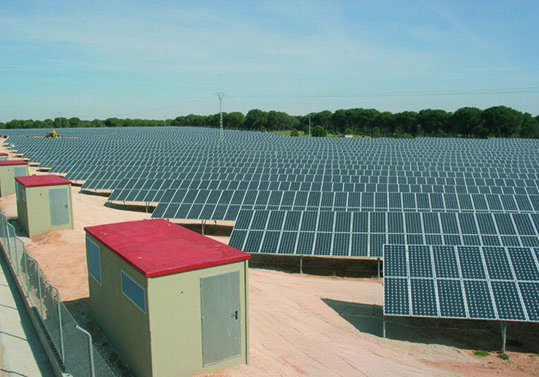The University is researching the legal framework for citizens to produce their own energy consumption before 2021 in Valencia
- Press Office
- September 5th, 2018

The University Institute for Research in Social Economy (IUDESCOOP) of the Universitat de València has presented the first conclusions of its work on the ProSumE project, with regard to the evolution of the existing and necessary administrative-legal framework to ensure that more photovoltaic energy can be produced and consumed in Valencia to promote the figure of the prosumer. These conclusions are presented within the framework of the working group that comprises the Universitat de València, Las Naves, the Climate Change Observatory, together with the Universitat Politècnica de València and AVAESEN (Valencian Association of Energy Sector Companies).
The conclusions presented this week in the field of legislation are the continuation of the documents that the Universitat Politècnica presented in July in the technical field. The final day of the project, where the final results will be presented, will take place on 22 October in Las Naves.
The ProSumE (Enabling Energy Prosumers Services) project aims to define a roadmap to turn Valencia into a national and European reference in terms of self-consumption and self-production of solar energy. It is an initiative of the University Research Institute in Social Economy, Cooperativism and Entrepreneurship (IUDESCOOP) of the Universitat de València; the Las Naves innovation centre; the Fundación Observatorio del Cambio Climático of the City Council; the Instituto de Ingeniería Energética (IIE) of the Universidad Politécnica de València; and AVAESEN (Valencian Association of Energy Sector Companies). Funding is provided by the EIT Climate Kic, the European Union's main initiative on climate change.
Although there is still no legal concept, the figure of prosumer (person who meets the condition of production and consumption of renewable energy) has gained strength in recent years in European institutions and countries, particularly on the basis of the Commission's Communication 'Clean Energy for All Europeans' (31 November 2016), which aims to accelerate and consolidate the transition of the European economy towards clean energy. It also claims the proactive role of citizens in this transition.
The main objectives are the decentralised generation of energy, eliminating obstacles to self-generation and giving a more active role to consumers so that they can produce, store, share, consume and sell their own energy in the market. According to the European Union, it is necessary for people to have the right to be self-consumers of renewable energies, as well as to sell their surplus production without having to pay taxes for consuming electricity produced by themselves.
As Gemma Fajardo, professor of Commercial Law and researcher at IUDESCOOP, explains, "Spanish legislation does not refer to the figure of prosumer or self-consumer, although it does refer to the self-consumption of electricity. Contrary to the directive of the European Union, the legislation in Spain only contemplates the self-consumer as an individual and not as a group (after the ruling of the Constitutional Court in June 2017). Nor does it allow the person who consumes himself to sell the energy that he does not consume or that he has left over. These obstacles will have to be eliminated legislatively, at the latest, by the time the European directive enters into force on 1 January 2021.
In spite of everything, in Spain steps have already been taken towards a more favourable context and several political groups have presented a proposal in the congress that incorporates some improvements. For example, group self-consumption, the non-requirement that the consumer be the owner of the production facility and the reduction of burdens to the small producer. However, we still have to recognize the possibility that the prosumer can sell their surpluses as is already done in other more pioneering countries such as Germany or the State of California.
Even so, there are pioneering experiences that have been developed in recent years to support prosumers in Spain. Among them, the projects of collective purchase and installation of photovoltaic equipment between citizens, which allow reducing costs and speeding up the administrative procedures. In addition, they help to eliminate the apprehension of the installation of panels known as 'solar phobia', thus encouraging citizen participation.
















